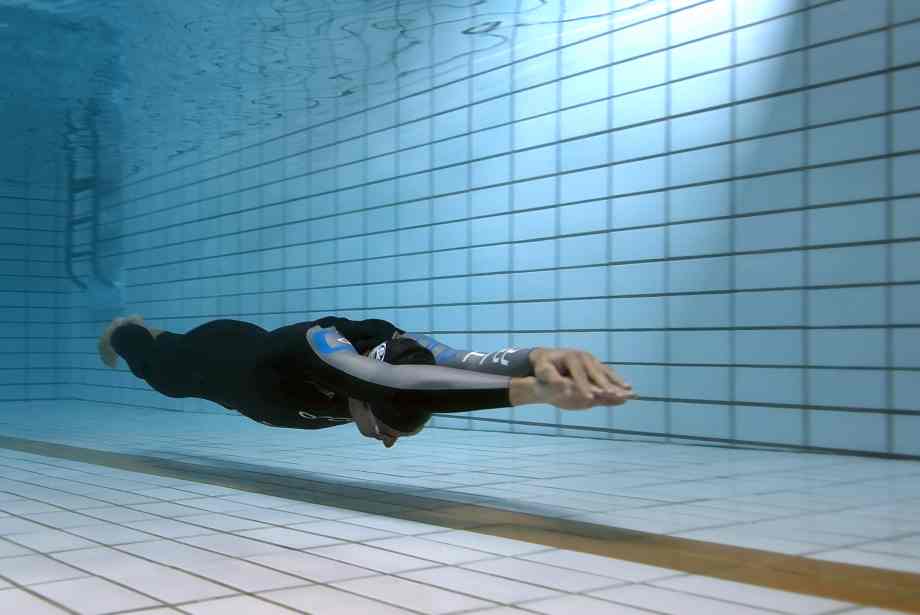- You are here:
- Home »
- Blog »
- Dive Deeper »
- Is Smoking and Freediving Killing Your Bottom Time?
Is Smoking and Freediving Killing Your Bottom Time?


Is smoking eating away at your depth and bottom time?
It never ceases to surprise me how common smoking and freediving is – especially among some elite, record-breaking freedivers.
After all, freediving is a sport that revolves around holding your breath and using your lungs efficiently…something that smoking can severely handicap. So how are so many freedivers able to smoke yet still hit unbelievable depths? What role does smoking play in your freediving performance?
To answer these questions, I decided to research and compile everything I could find on the topic.
The overwhelming response is that yes, smoking does hurt your freediving performance. Whether you smoke tobacco, herbs or marijuana: each puff you take sacrifices underwater depth, total breath-hold time and can make it much harder to equalize. Some freedivers report quitting smoking and seeing a massive 25 – 50% increase in depth!
If you’re a smoker and you want to be able to hold your breath longer, the best thing to do is to quit smoking now.
If you’re not ready to go ‘cold turkey’ and completely give up smoking, I recommend switching to a healthier alternative that doesn’t damage your lungs as much as cigarettes.
A possible healthier switch could be to something like e-cigs or nicotine vapes. You’ll notice after using them for a couple weeks that your breath-holding ability can get much clearer, stronger and deeper, leading to better dives.
Disclaimer: Please be aware the information in this post has been written for educational purposes only. It is based on research I did over many resources I could find over the web, but should not replace the advice of a physician or medical expert.
Smoking and Freediving: How does smoking affect freediving?
Before I get into the specifics of smoking and freediving, let me first state that this post isn’t some anti-smoking, guilt-inducing rant meant to shame smokers into quitting.
Some people enjoy smoking and others don’t. There’s no judgement on my end – I completely understand the appeal and think it’s simply just another life decision. But for the sake of this post; smoking will not be seen as a good habit, simply because it takes away from your freediving ability.
With that out of the way, let’s look at how smoking and freediving pans out for you.
First, lets start with how smoking can actually help your freediving performance. And yes, I did just say help your freediving.
Funnily enough, there actually is some research suggesting that smoking can be beneficial for freediving. Let’s take a look at what it is:
2 weird ways smoking might help boost breath-hold times
1) Long term smoking can destroy your body’s carbon dioxide sensors.
- When you inhale oxygen, it absorbs into your blood and carbon dioxide is left over as waste. The higher the level of carbon dioxide in your body; the more you feel the urge to breathe. Smoking removes much of your body’s natural ability to detect this rising level of carbon dioxide, meaning a smoker can go for longer without feeling the need to breathe.
- The flip side to this is that as a smoker, you’re not able to accurately detect when your body is in critical need of oxygen. Your body can’t feel the rising levels of carbon dioxide which leads you to potentially over-estimating how long you can dive for. The end result is a massive increase in the chances of you blacking out under water from lack of oxygen.
2) Smoking forces your body to deal with a variety of poisonous gases entering your body at any point.
- Such gases include carbon monoxide, hydrogen cyanide etc. This causes a continuous deficiency in the amount of oxygen reaching your brain and tissues in your body. Although the overall effects of this are of course bad for your health…
- Some argue that it’s possible your body adapts to this constant state of oxygen deprivation, making your body operate more efficiently with less oxygen – which in a sense mimics a breath-hold dive. Sound far-fetched? Maybe it is. But it could also explain why some chain-smoking beginner freedivers are able to hit 2 minutes+ on their first ever static apneas. And it could also explain why so many veteran spearos are able to smoke, yet easily catch deep-dwelling fish.
Now that we’ve gotten the possible benefits to smoking and freediving out of the way…let’s look at why it can hurt your diving performance.
How smoking kills your breath-hold, bottom time and depth
Below is a list of just some of the ways smoking can ruin your freediving ability:
- The heat of the smoke you inhale burns the ‘cilia’ in your lungs to a crisp. Cilia are tiny hairs which clean and sweep away any dirt, pathogens or gunk stuck in your lungs. Without this strong line of defense, your lungs become less efficient and more likely to get infected.
- Smoking constantly agitates your lungs producing large amounts of mucous. Mucous build up can make equalizing much harder or even impossible. This can cause you to abort dives before you reach your max potential depth.
- Smoking lowers lung tissue flexibility. With less flexibility among the tissues in your lungs, your chances of getting pulmonary barotraumas sky rockets.
- Smoking boosts acidity in the blood & can lower total surface area of alveoli. Alveoli are the tiny air sacs in your lungs where oxygen is transferred into the blood. When you smoke you lower the efficiency of the oxygen exchange between your alveoli and blood and you boost the acidity of your blood. These two things make oxygen diffusion harder. Both effects can cause you to black out underwater slightly before a non-smoker.
- Smoking boosts your heart rate, blood pressure and metabolism. This increases the rate at which your body uses oxygen, which reduces your breath-hold times.
- Smoking introduces carbon monoxide into your system. In a nutshell, carbon monoxide attaches to your red blood cells while blocking oxygen. This leads to less efficient oxygen transfer to your brain and lower diving times.
- Smoking boosts your carbon dioxide thresh-hold. This may seem like a good thing initially because you can hold your breath longer without feeling the need to breathe. But it also means you could be ignoring your body pleading for more oxygen, resulting in underwater blackout and possible death.
- Smoking can cause anxiety. Some freedivers say that diving and knowing they have bad chemicals in their body from smoking, makes them worry. This is bad as worrying only makes your heart go faster which burns through your oxygen supply. On the flip side, some smokers say smoking calms them down before a dive!
- Smoking destroys lung tissue. This leads to much less efficient gas exchange, so less oxygen is carried throughout your body.
- Smoking and the effects of nicotine can narrow your arteries. This decreases the amount of oxygen-rich blood that runs through your body, shortening your total bottom time.
How quitting smoking will make you a better freediver

After just 4 weeks of quitting, your breath-hold time may jump anywhere up to 400% longer!
After just 20 minutes of having your last cigarette, your body will start to repair itself.
This reparation process usually lasts up to about 1.5 years. After this period of time, many the repairable tissues, organs and cells in your body are usually healthy again.
It’s important to note that not all body parts are repairable from the effects of smoking. Depending on how much you smoked and for how long; you may be stuck with permanent damage from smoking.
But if you’re looking to boost your freediving performance, you’re always better off ditching your smoking habit – even if you have already incurred permanent damage.
So…how will your freediving performance change when you give up smoking? Let’s have a look below:
- Better breathing after just 3 days of quitting: Quitting smoking lowers lung and throat irritation caused by chemicals and hot smoke. This means your lung and throat tissue will stop swelling and start to shrink, making breathe-ups before diving better.
- Easier equalization at depths: After quitting smoking, you give the cilia in your lungs a chance to regrow in peace. After about 9 months they should have fully regrown and have swept a huge amount of pathogens and dirt out your lungs. This means less mucous, colds and infections blocking your sinuses leading to easier equalization.
- Faster oxygen re-absorption: Damaged alveoli are often able to regrow and become stronger than they were before. The increased surface area of more healthy alveoli makes for more efficient gas (oxygen) exchange, which means you’ll be able to dive deeper, for longer.
- Oxygen conservation: Without nicotine and other chemicals from smoking in your body, your blood pressure and heart rate are able to drop down to normal again. This means you’re body won’t burn through oxygen as quickly, making for longer breath-holds.
- More efficient oxygen absorption: No longer will your body have to put up with carbon monoxide binding to red blood cells and blocking oxygen absorption. Your body will now be able to better absorb oxygen and use it more efficiently.
Overall – once you quit smoking, you’ll be surprised at how much deeper you’ll dive with seemingly no extra effort.
It’s almost guaranteed that your smoking is holding you back. Many freedivers report it taking about ~ 4 weeks after quitting to notice better apnea times.
Some freedivers report quitting smoking and doubling or sometimes even quadrupling their breath-holds in just 4 months. Others report quitting and being able to break the 5 minute static apnea barrier with no sweat.
In other words: when you quit smoking you tap into your full potential as a freediver.
But what about the body parts that don’t repair even if you quit smoking?
Is there such thing as permanently damaged tissues from smoking? And if so, will your freediving performance forever be handicapped?
Irreversible damage done to your body from smoking
The below list is not a final be-all-end-all list. Some of the damage done by smoking that’s listed below as ‘irreversible’ may well repair itself. It all depends on how much and for how long you smoked for.
Parts of your body that do not repair after smoking:
- Not all areas of your lungs regenerate: Typically, chronic smokers have serious scar tissue. Scar tissue rarely heals and can impact breath-hold times negatively. This may also permanently lower the efficiency of your oxygen exchange in your body, leading to shorter diving times.
- Lung elasticity is permanently reduced: If you’ve been diagnosed with emphysema, it’s likely irreversible. You may have damaged alveoli which leads to lowered lung elasticity. All this means you could risk more lung injuries at depth.
Famous freedivers who smoke (or used to smoke)
Although smoking definitely acts as a barrier to you hitting your fullest potential as a freediver…there are still hundreds if not thousands of freedivers who smoke and dive deep.
There are some individuals who are able to smoke and set record depths…and even smash world records! Listed below are freedivers who either still smoke or used to smoke:
- Enzo Maiorca: Very popular old school freediver who broke and set an enormous amount of world freediving records. Enzo was noted to be a regular smoker and only stopped smoking 30 days before each record attempt.
- Pierre Frolla: 3 times world record champion in Free Immersion dives.
- Claude Chapuis: 7 minutes and 50 seconds static apnea time. 70 meters (~229 feet) Deep Constant Weight.
- Guy Brew: Set a huge Dynamic Apnea With Fins record at a whopping 233 meters (~764 feet).
- Daan Verhoeven: Former Dutch freediving record holder and professional underwater photographer.
These guys listed above have all had a history of smoking and still managed to set incredible records and have amazing freediving experiences. But think for a moment how much more of their potential these divers could tap into, if only they didn’t smoke.
To any of you guys thinking about quitting smoking for better freediving, you might find this video inspiring:
https://www.youtube.com/watch?v=59PlLONo8FI
What about e-cigs – are they bad for freediving?
e-cigarettes are generally regarded as being healthier for your lungs than normal cigarettes.
But that doesn’t mean they won’t affect your freediving performance.
Research shows e-cigs can cause lung inflammation, which may lead to mucous production and difficulty equalizing. E-cigs also carry nicotine, which increases blood pressure, thus increasing oxygen use when diving.
Lastly, it’s theorized that e-cigs do not leave any resin but do leave a coating of vapor on the linings of your lungs. It’s said this can temporarily block some oxygen absorption. If this is true, it’s better to wait to puff on your e-cig until after your diving for the day, so your blood absorbs oxygen quickly during your dive.
Overall, smoking e-cigs is probably way better for your freediving performance when compared to smoking cigarettes. If you can’t stop smoking cigarettes ‘cold turkey’; you can always step up into the healthier option and invest in an e-cigarette or vape (nicotine vape) and use that for a couple months…then slowly stop vaping all together.
Vaping / using e-cigs is also much more affordable than cigarettes, especially seeing as you can get a vape online for about the cost of a large meal.
Are herbal vaporizers bad for freediving?
Like e-cigs, vaporizing is also seen as the healthier alternative to smoking cigarettes.
In this case vaporizing means smoking herbal substances like aloe vera, types of tea and so on. Depending on the herbs you smoke, it’s less risky than cigarettes.
But there still is a twofold risk here.
First, you don’t know how the herbs will affect you under pressure and depth. Second, you don’t know how the additives to your herbs will affect you under pressure and depth. For this reason, I do not recommend vaporizing before freediving (even if what you’re smoking is ‘legal’).
What about smoking marijuana and freediving?
I’ve never tried this myself. But I can imagine (and I’ve heard) that it’s pretty damn trippy. Some even say it’s an ‘enlightening experience’.
However, as you can probably expect: smoking weed and freediving is not recommended.
There is a laundry list of side effects that come from smoking marijuana. These ranges from paranoia, euphoria, anxiety, slowed reaction times, confusion and so on. One big side effect of being high, is that it’s commonly reported that time seems to slow down. This is risky as it could lead you to underestimating how long you’ve been underwater for, leading you to overestimate how much longer you can dive for – only to black out before resurfacing.
Overall: freediving is a risky sport. Do you really want to make it even riskier by being under the effects of mind-altering drugs while you dive?
Smoke and freediving: final thoughts
You can still hit incredible depths as a freediver who smokes tobacco. There are countless examples of professional freedivers to prove this.
But it’s almost certain that smoking will get in the way of you hitting your fullest potential as a freediver and perhaps even make your dive a less enriching experience.
About the Author Gerrie van Niekerk - Apnealogy
Gerrie is a passionate Freediver, Spearfisher, Digital Marketer, and author for the Apnealogy website. Gerrie is an SSI Level 1 certified Freediver who loves geeking out about freediving and spearfishing gear and lives for his family and adventure.


